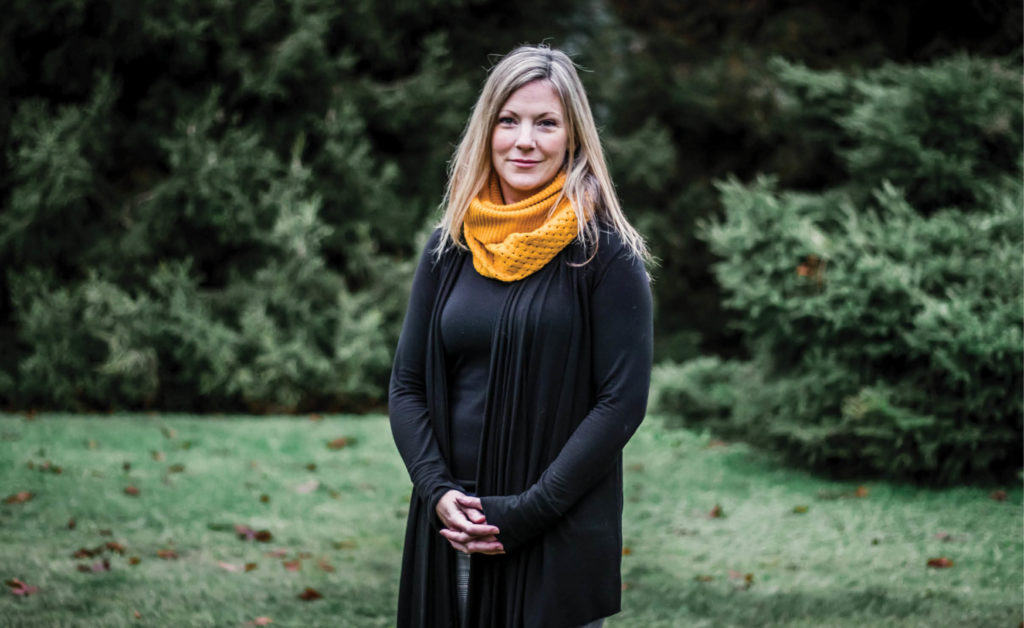by Anne Miller | photo by Amanda Cribdon Photography –
Stats. Graphs. Demographics. Daily, we learn how COVID-19 is threatening our world and remains a clear and present danger. The numbers don’t touch our hearts, though, like images and stories.
The November 30th broadcast of CBC’s The Moment revealed the image of a doctor embracing an elderly COVID-19 patient crying for his wife. The photo encapsulates the widespread anguish of so many. So does storytelling. I recently talked with Jane Dolan, a recreation therapist at the Saanich Peninsula extended-care facility. She talked about her role and the lives of residents there – many of whom have dementia – since this pandemic appeared. Contact between family members is limited to phone calls, essential in-person visits or visits through a window. Here, I want to talk about life on the other side of that glass, through the eyes of the residents and the caregivers.
Forced “lockdown” has meant that comforting touches now pose a threat to residents so caregivers, within their goal to keep residents safe, improvise ways to retain essential human connections. Staff have stepped up from Day 1, offering personal cell phones to facilitate conversations. Subsequently, the Saanich Peninsula Hospital Foundation and Greater Victoria Eldercare Foundation have offered tablets and phones to residents and sponsored a special activation department to manage the overall functions central to residents’ quality of life.
Jane takes her responsibility to each resident to heart. She believes that she can personally contribute by facilitating meaningful moments, introducing humour, patience and encouragement as well as knowing the families and residents on an intimate level. She pictures what it’s like for someone with dementia to understand why she can’t touch her loved one. She sees the difficulty of the family member who’s never been inside the facility, not knowing where Mum eats, what her father’s room looks like or if his wife remembers him. Jane wants each of you to know that caregivers love and know your parents, your spouses, your sibling, making sure they know they aren’t forgotten. Staff are putting them first, though sometimes it can be exhausting and heartbreaking.
To cope, Jane writes. “Today, I watched a husband sit in the pouring rain, one hand balancing the umbrella while his gloved hand reaches through a small crack in the door. Each day, this man comes to hold his wife’s hand. She’s visually impaired and his touch and voice are keeping her alive. I listen to him talk to her. I watch him look at her with a look of lifetime love. My chest gets tight and I feel my eyes well up. My heart aches for this couple.”
Writing about her feelings is cathartic, but Jane also knows how important her work family and self-care are to maintaining her ability to be strong and supportive. She loves her work and the privilege of helping this particular population and that motivates her. “If I can make residents laugh or connect them with something meaningful, I feel I’m successful.”
She understands that those of us on the outside of that glass feel moved to contribute somehow. She suggests donations to the Foundations to provide tangible resources like virtual programming, more robotic or companion animals, more resources. Some might be inclined to write a letter or pick a poem to share with residents or caregivers. They can be dropped off and they will certainly be read.
Jane remains hopeful and yearns for the day soon when “our doors will open again so that you may come and take your seat alongside your loved ones and, on that day, I will step aside and watch your eyes meet, watch you open your arms and embrace. In that moment, I will know everything is OK.”




